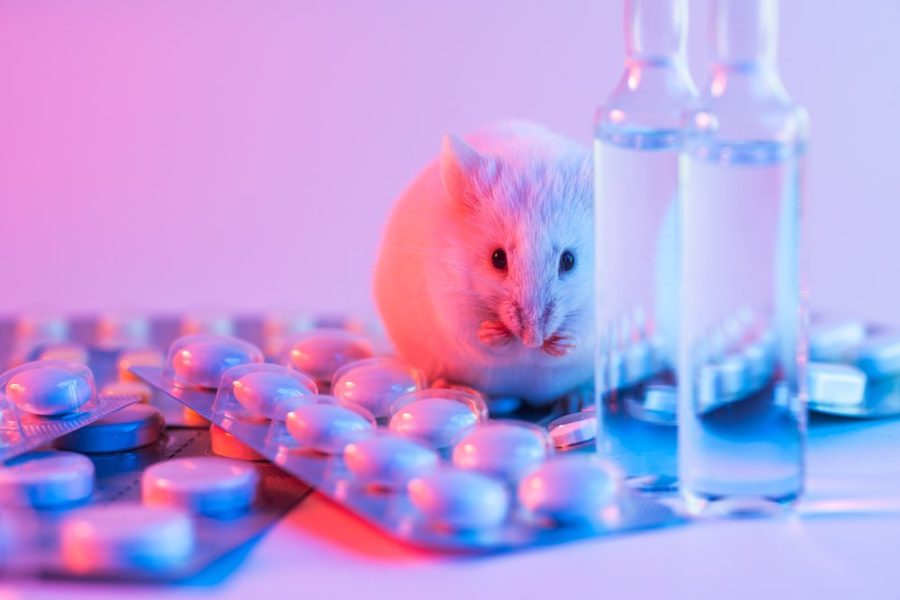Animal Testing Ethicality
What are the different sides of the argument to laboratory testing of animals?
The ethics of animal testing are still up in the air.
March 20, 2023
Animal testing has been around for thousands of years, originating at a minor scale as early as 500 B.C. Although not being directly tested upon, animals are dissected and observed closely at Spartanburg High School to further a student’s understanding of anatomy, evolution and ecology. These observations are done with care and for educational purposes, and do not involve the harming of animals.
Biology teacher Jeremy Pruett believes that completing these dissections humanely and observing the animals safely is essential to a basic understanding of science and the natural world.
“Analyzing animal behavior is a way to model what professional scientists do and helps students gather and analyze data to support or refute their hypotheses,” Pruett said.
As the picture of animals and science gets broader, however, many question the ethicality of testing certain products or medicines on living animals in experiments. Some argue that if suffering is minimized, so is harm to the animal. Others argue that this suffering has shown to not even benefit humans. A common ground needs to be made to unite both positions on animal experimentations.
Most people recognize that animals have at least some moral status. Those in favor of more animal rights in terms of animal testing feel as though this amount of moral status that the animal possesses must be equivalent of that of a human.
Stephanie Liou, a pediatrician that has completed research on the ethical treatment of animals, tends to focus on the ethicality of lab testing and healthcare reform. Liou highlights this concept in her recent research on www.hopes.stanford.edu.
“They can feel pain and experience pleasure. Therefore, they should have the same moral status and deserve equal treatment,” Liou said.
Supporters of this argument claim that granting animals less and less moral status than humans is a form of speciesism, a form of prejudice against different species. Overall, the argument for those against animal testing consists of animals having equal rights to humans, and the idea that since animals can feel like humans, they should receive the same treatment as humans.
The case in favor of animal experimentation is also one based off scientific reason. This side argues that suffering can be minimized in all experiments, which would create a more peaceful and safe way of figuring out the solution to new problems popping up in the world. But the main argument used by those in favor of animal experiments is that human benefits are gained immensely which cannot be obtained any other way safely. It’s argued that if human lives can be saved through the death of a few animals, it is morally acceptable and should be encouraged to do.
According to Britannica (which is known as the most authoritative encyclopedia in the world) on procon.org, animal testing contributes to life-saving cures and treatment. It highlights a couple key points to the argument, including the fact that animal testing is crucial to making sure vaccines are safe and that there is no true alternate to testing on a living body other than animals.
“As living systems, human beings and animals are extremely complex. Studying cell cultures in a petri dish, while sometimes useful, does not provide the opportunity to study interrelated processes occurring in the central nervous system, and immune system,” Britannica said.
The most reasonable solution is for both sides to come to a middle ground. Some ideas should be followed to keep that middle ground centered for both sides. Less complex organisms can be used when possible, and their use should stay as low as possible. The animals should also be treated with as little pain and as much respect as possible, as the people who handle the animals should be properly trained and have the knowledge of the power that they possess.
Overall, to find something that both sides of the argument agree on is key to finding a solution to this ethical question. This middle ground would consist of experimentation on animals being avoided whenever possible in favor of more humane and accepted research opportunities and strategies.





